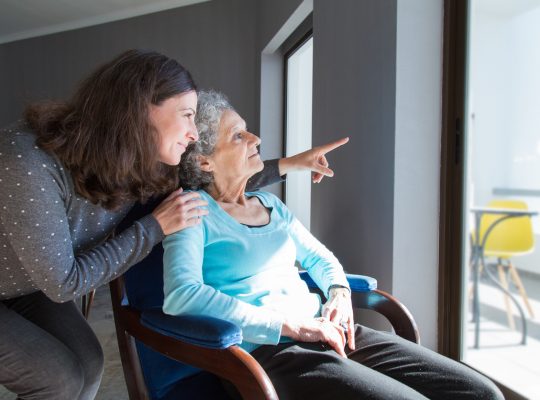Hearing loss is a common problem among the elderly population. As people age, their hearing abilities can decline, leading to difficulty in communication, social isolation, and decreased quality of life. As per the National Institute on Deafness and Other Communication Disorders (NIDCD), one in three people between the ages of 65 and 74 have some degree of hearing loss. The number increases to almost one in two for those over the age of 75. In this article, we’ll discuss the causes, symptoms, and treatment options for hearing loss in the elderly.
Causes of Hearing Loss in the Elderly
 There are many factors that can contribute to hearing loss in the elderly. One of the most common causes is age-related hearing loss, also known as presbycusis. This condition is a gradual loss of hearing that occurs over time due to changes in the inner ear and other parts of the auditory system. It typically affects both ears equally and can result in difficulty hearing high-pitched sounds, understanding speech in noisy environments, and distinguishing between similar sounds.
There are many factors that can contribute to hearing loss in the elderly. One of the most common causes is age-related hearing loss, also known as presbycusis. This condition is a gradual loss of hearing that occurs over time due to changes in the inner ear and other parts of the auditory system. It typically affects both ears equally and can result in difficulty hearing high-pitched sounds, understanding speech in noisy environments, and distinguishing between similar sounds.
Another common cause of hearing loss in the elderly is exposure to loud noises over time. This can include workplace noise, recreational activities, or even daily exposure to loud traffic. As the ear is exposed to these loud sounds, the tiny hair cells in the inner ear can be damaged or destroyed, leading to hearing loss.
Other Causes of Hearing Loss in the Elderly Include:
- Certain medications that can damage the ear, such as antibiotics, chemotherapy drugs, and aspirin in high doses
- Medical conditions, such as high blood pressure, diabetes and cardiovascular disease, that can affect blood flow to the inner ear
- Infections or diseases, such as meningitis, mumps, and shingles, that can damage the ear or auditory nerve
- Genetics, as hearing loss can run in families
- Earwax buildup, which can block the ear canal and prevent sound from reaching the inner ear
Symptoms of Hearing Loss in the Elderly
The symptoms of hearing loss in the elderly can vary depending on the cause and degree of the hearing loss. Some common symptoms include:
- Difficulty hearing high-pitched sounds, such as a child’s voice or a bird’s song
- Trouble following conversations in noisy environments, such as restaurants or parties
- Needing to turn up the volume on the television or radio
- Asking people to repeat themselves frequently
- Misunderstanding what people are talking or responding inappropriately to others
- Feeling tired or stressed after prolonged listening
Treatment Options for Hearing Loss in the Elderly
 There are several treatment options available for hearing loss in the elderly. The first step is to get a comprehensive hearing evaluation from a licensed audiologist. This evaluation will determine the type and degree of hearing loss and help identify any underlying causes or contributing factors.
There are several treatment options available for hearing loss in the elderly. The first step is to get a comprehensive hearing evaluation from a licensed audiologist. This evaluation will determine the type and degree of hearing loss and help identify any underlying causes or contributing factors.
One of the most common treatment options for hearing loss is hearing aids. These devices can amplify sound and improve speech clarity, making it easier to communicate in daily life. There are several and different types of hearing aids available, ranging from behind-the-ear models to tiny devices that fit inside the ear canal. Some models also come with advanced features, such as Bluetooth connectivity and noise-reduction technology.
Another treatment option for hearing loss in the elderly is cochlear implants. These devices are typically recommended for people with severe hearing loss who do not benefit from hearing aids. Cochlear implants work by bypassing the injured hair cells in the inner ear and directly stimulating the auditory nerve.
In some cases, medical or surgical interventions may be necessary to treat hearing loss. For example, if the hearing loss is caused by earwax buildup, a doctor may recommend earwax removal. If the hearing loss is caused by a medical condition, including coping strategies and preventative measures for hearing loss in the elderly.
Coping Strategies for Hearing Loss in the Elderly
Living with hearing loss can be challenging, but there are now many coping strategies that can help improve communication and quality of life. Some of these strategies include:
- Using visual cues, such as lip reading or facial expressions, to supplement hearing
- Asking people to speak clearly and face-to-face
- Reducing background noise when possible, such as turning off the television during conversations
- Using assistive listening devices, such as amplified telephones or personal FM systems
- Participating in hearing loss support groups or counseling to address the emotional impact of hearing loss







